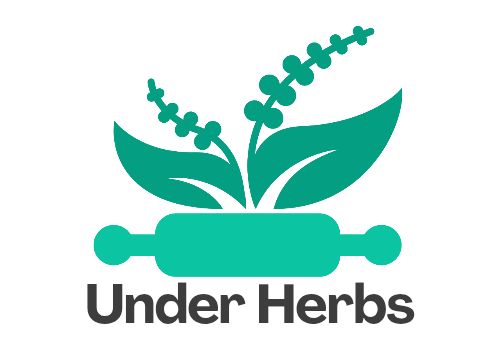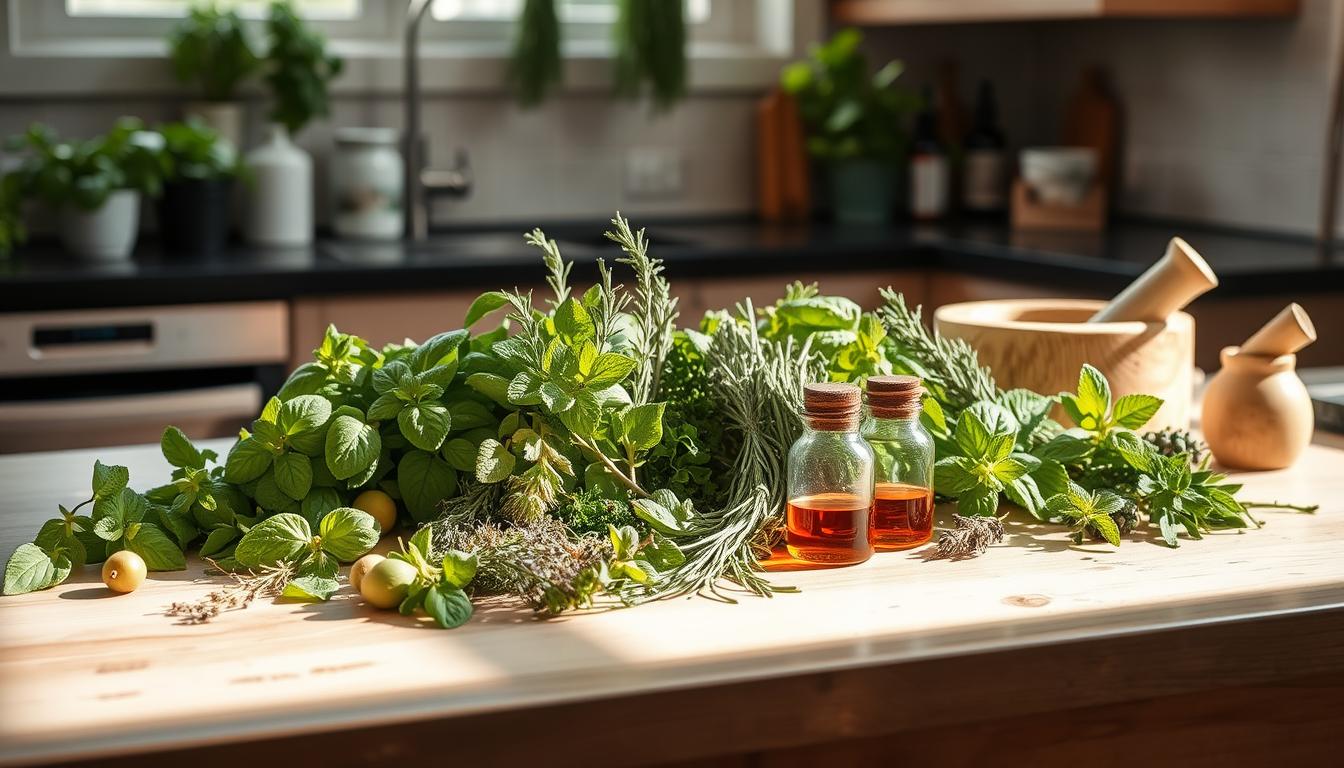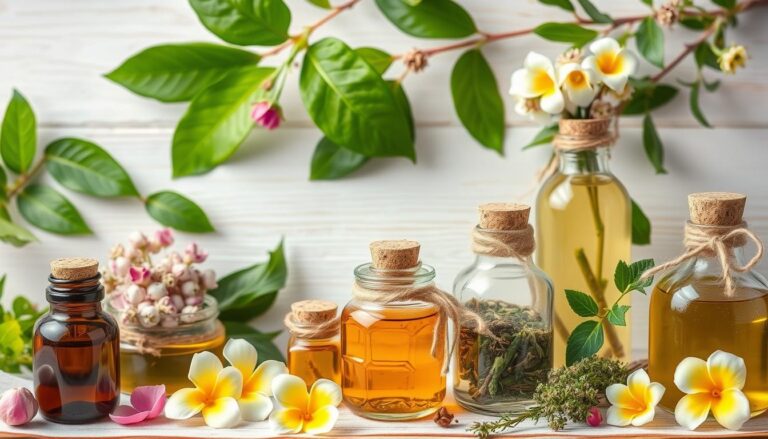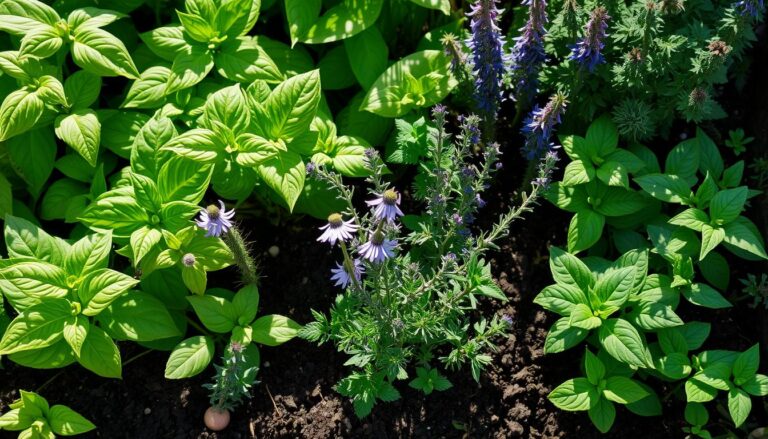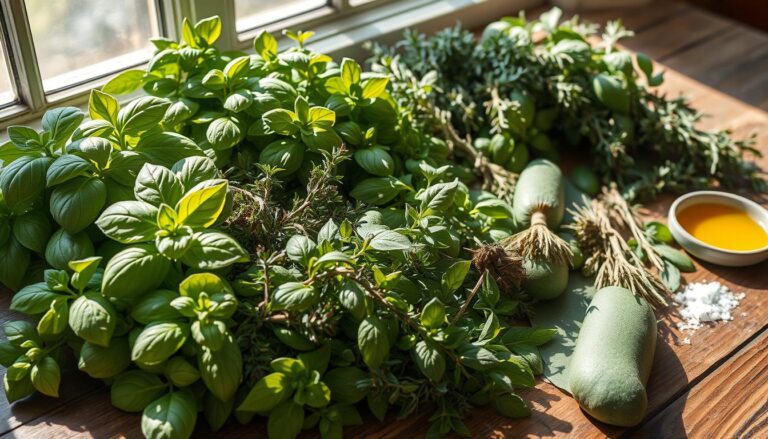Herbs for Wellness: Holistic Tips to Enhance Your Health
Have you ever thought about why some herbs are so good for health? The FDA doesn’t check supplements like it does medicines, which might mean some aren’t as good as they seem1. Herbs like turmeric and ginger are great for adding flavor and helping your body feel better2. It’s important to know which herbs are safe and to choose high-quality ones for the best results.
Using herbs in your daily life can help you stay healthy. Herbs like cilantro and parsley are full of good stuff for your body2. They can help with stress, keep your immune system strong, and make you feel better overall. Natural remedies offer a natural way to improve your health.
Key Takeaways
- Herbs have been used for thousands of years to promote health and wellbeing
- The FDA does not regulate supplements in the same way as prescription drugs, highlighting the need for caution and informed use1
- Certain herbs, such as turmeric and ginger, have anti-inflammatory properties and can be used to promote wellness2
- High-quality herbal supplements are essential for maximum effectiveness and safety
- Incorporating wellness tips with herbs into your daily routine can help promote overall health and wellbeing
- Natural remedies for wellness can provide a holistic and effective solution for managing stress, boosting the immune system, and improving overall health
Understanding the Power of Herbal Medicine
Herbal wellness techniques have been around for centuries. They are more than just for cooking. In the U.S., many people use herbal supplements, showing a big market for these products3.
Before they were used in cooking, many herbs were valued for their health benefits. When used right, some herbs can add health benefits to our food, like antioxidants and phytochemicals.
Herbs like chamomile, tulsi, echinacea, elderberry, ginger, and valerian are safe for most people in small amounts4. But, always talk to a professional before using them for health issues. They help prevent and manage diseases and improve health5.
Herbal medicine uses all parts of plants, like roots and leaves, for health benefits5. Some herbs are mixed to make them safer and more effective. It’s important to know where your herbs come from for safety and quality4.
For the best results, see a trained herbalist before mixing herbs with medicines or during pregnancy5.
| Herb | Medicinal Use |
|---|---|
| Chamomile | Calming and soothing effects |
| Echinacea | Boosting the immune system |
| Ginger | Aiding digestion and reducing nausea |
Learning about herbal medicine and using herbal wellness techniques can help you stay healthy3.
Essential Herbs for Daily Wellness
Adding herbs to your daily routine can boost your health. Knowing the wellness benefits of herbs helps you choose wisely for your health.
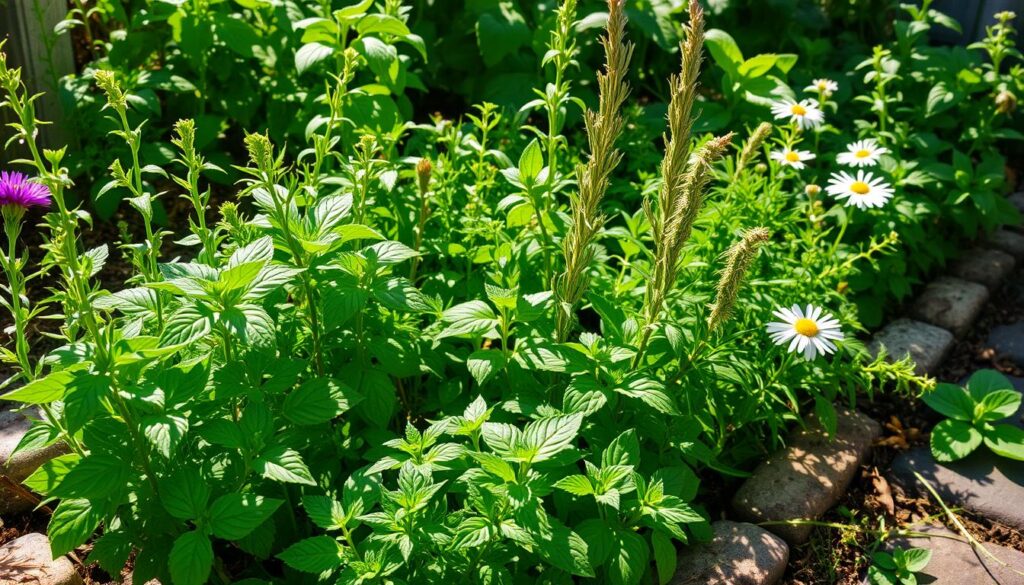
- Chamomile: Promotes relaxation and aids sleep6.
- Lavender: Reduces stress and enhances mood67.
- Rosemary: Improves memory and has anti-inflammatory properties67.
- Mint: Aids digestion and provides a refreshing flavor to dishes.
- Hibiscus: Lowers blood pressure and is rich in antioxidants8.
Herbal teas are a great way to enjoy these herbs every day. Chamomile or lavender tea can help you unwind. Rosemary or mint tea can help with digestion.
| Herb | Benefits | Uses |
|---|---|---|
| Chamomile | Promotes relaxation, aids sleep | Tea, tinctures |
| Lavender | Reduces stress, enhances mood | Tea, aromatherapy |
| Rosemary | Improves memory, anti-inflammatory | Culinary uses, tea |
| Mint | Aids digestion | Tea, fresh in dishes |
| Hibiscus | Lowers blood pressure, antioxidants | Tea, beverages |
Wellness Tips with Herbs for Immune Support
Keeping your immune system strong is key to staying healthy, all year round. Adding herbal wellness tips to your daily life can help naturally boost your body’s defenses.
Echinacea and Elder: Your Immune Defenders
Echinacea is great for supporting your immune system, which is important when you might get sick9. Elderberry can make cold symptoms less severe and shorter9. These herbs are essential in herbal wellness for their proven benefits.
Creating Immune-Boosting Herbal Teas
Creating your own herbal teas is a fantastic way to add immune-boosting herbs to your diet. Mix echinacea, elderberry, and ginger for a drink that soothes and strengthens your immune system. This not only warms you up but also supports your immune health naturally.
Seasonal Herbs for Year-Round Protection
Each season needs its own herbal wellness practices. In winter, use warming herbs like ginger and turmeric to keep your immune system strong10. In summer, cool herbs like chamomile help keep your body’s defenses up against health issues910.
Herbal Solutions for Stress Management
Managing stress is key to staying healthy. Using herbal wellness strategies can offer natural help to deal with daily stress.

Herbs like ashwagandha and holy basil help your body handle stress better. They keep cortisol levels in check11. Research shows that ashwagandha can lower stress levels a lot, more than a placebo11.
- Chamomile: Used in the U.S. to ease anxiety and help relax12.
- Lavender: Improves mood, reduces anxiety, and helps sleep better12.
- Valerian Root: Known for calming effects and aiding sleep12.
Adding these herbs to your day can be easy. Try making a calming tea with chamomile and lavender. Or use essential oils at night to sleep better12. Also, regular exercise can help lower stress naturally13.
Using a mix of natural remedies for wellness and lifestyle changes works best for stress management13.
| Herb | Benefits | Usage |
|---|---|---|
| Ashwagandha | Reduces stress and anxiety | Supplements or teas |
| Chamomile | Promotes relaxation and better sleep | Teas or compresses |
| Lavender | Enhances mood and reduces anxiety | Essential oils or teas |
| Valerian Root | Calming effects and sleep aid | Supplements or teas |
| Holy Basil | Balances stress hormones | Teas or supplements |
Digestive Health Through Herbal Applications
Herbal wellness techniques can greatly help with digestive health. Adding herbs like ginger and fennel to your daily routine can ease bloating, nausea, and indigestion. These herbs have natural anti-inflammatory properties that soothe the digestive system14.
Peppermint, ginger, and fennel are top herbs for digestive health. You can drink them as teas, take tinctures, or mix them into food. Research shows that over 40% of medicines in western pharmacies come from plants14. This shows how vital herbal wellness is for our health.
A study by the National Institute of Diabetes and Digestive and Kidney Diseases (NIDDK) found that 60-70 million people suffer from digestive diseases15. Herbs like slippery elm root and marshmallow root can ease digestive disease symptoms. Also, chamomile and lavender can reduce stress and promote relaxation, aiding digestive health15.
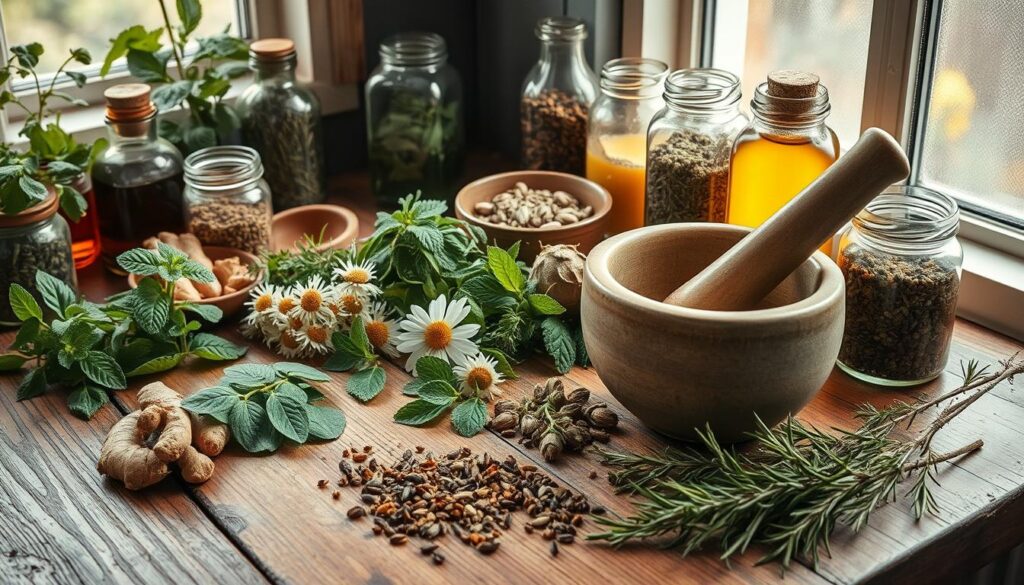
- Peppermint oil for IBS symptoms
- Ginger for nausea and indigestion
- Slippery elm root for intestinal health
- Chamomile for stress and relaxation
By using these herbal wellness techniques daily, you can improve your digestive health and overall well-being1415.
| Herb | Benefits |
|---|---|
| Peppermint | Alleviates IBS symptoms |
| Ginger | Reduces nausea and indigestion |
| Slippery Elm | Supports intestinal health |
Creating Your Personal Herbal Wellness Routine
To start using herbs for wellness, first think about what you need and want16. Pick herbs that fit your health goals. You can use herbs in cooking or make herbal teas to begin17. Easy herbs for beginners include mint, basil, and rosemary, which can help in many ways16.
Being consistent is important when using herbs for wellness17. Keep herbal extracts in places you use often, like the kitchen. Set reminders to take them. You can also add herbs to your food for taste and health benefits17. Herbs like ginger and turmeric are great for everyday use16.
Listen to your body and change your routine if needed16. Make a list of herbs you want to use and how to use them. Ideas include making herbal teas or adding herbs to your cooking17.
- Making herbal teas, such as peppermint or chamomile, to promote relaxation17
- Adding herbs to your cooking, like basil or rosemary, to enhance flavor and provide health benefits17
- Creating simple home remedies, like a calming bath with lavender or a soothing salve with aloe vera16
Always talk to a healthcare professional before trying new herbal remedies, if you have health issues16. By adding herbs to your daily routine, you can make a wellness plan that’s just for you17.
Safety Considerations and Precautions
Exploring wellness tips with herbs and herbal wellness strategies requires safety. Over 38 million Americans use herbs for health reasons18. But, herbs can also affect other medicines. For example, St. John’s wort can lower the levels of many drugs, including some birth control and chemotherapy18.
Always talk to a healthcare provider before trying herbal remedies, if you’re on medication. The FDA says supplements add nutritional value to our diets19. They can include herbs and help with health and wellness19.
Herbs like Ashwagandha and Turmeric have good effects, like fighting inflammation20. But, they can also cause side effects and interact with other drugs. Most side effects are allergic reactions18. Babies under six months should not take herbs, and essential oils need to be diluted18.
By knowing these safety tips, you can use wellness tips with herbs and herbal wellness strategies safely. This can help improve your health and well-being every day.
| Herb | Potential Benefits | Potential Risks |
|---|---|---|
| Ashwagandha | Stress reduction, muscle strength improvement | Interactions with medications, allergic reactions |
| Turmeric | Anti-inflammatory properties, arthritis relief | Interactions with blood thinners, allergic reactions |
Sustainable Practices in Herbal Wellness
Starting your journey to holistic wellness with herbs means thinking about the environment. With 80% of people worldwide using herbs for health21, there’s a growing need for sustainable herbs. Growing your own herbs is a great way to get what you need while being kind to the planet.
When you harvest your herbs, do it in a way that helps them grow. For herbs like basil and mint, cut just above a leaf node. This method keeps your plants healthy and supports sustainable herbal practices.
It’s also key to think about the impact of essential oils. Some, like Rosewood, are facing big sustainability problems21. By picking eco-friendly oils and using them wisely, you can lessen your environmental impact.
Herbs like turmeric and ginger are good for your health. They can help with inflammation and support your digestive and heart health22. Adding these herbs to your routine can boost your health and support sustainable farming.
To help the planet, consider these tips for herbal wellness:
- Choose herbs that grow near you to cut down on emissions
- Back local farmers and herbalists who farm sustainably
- Use green packaging and storage for your herbs and oils
By following these tips, you can lessen your environmental impact. You’ll also support holistic wellness and help our planet stay healthy22.
Conclusion: Embracing Nature’s Healing Wisdom
Starting your wellness journey means tapping into nature’s wisdom. Herbal remedies have healed for centuries23. Ancient traditions like Ayurveda and Traditional Chinese Medicine show how mind, body, and spirit are connected for total well-being23. By adding these natural solutions to your daily life, you can discover the strength of natural remedies for wellness and wellness benefits of herbs.
Herbal medicine is not for everyone. Everyone’s body reacts differently, so start slow and watch how you feel24. Talk to a skilled herbalist or doctor to make sure you’re using these remedies safely and right25. They can help you make a wellness plan that fits you perfectly.
As you dive into herbal wellness, learn about its rich history25 and the new science backing it up25. By caring for the environment and choosing sustainable sources25, you help protect these valuable resources for the future.
Start this journey with an open heart and a desire to learn. Wellness is a journey of discovery, not a straight path. By embracing nature’s healing wisdom, you open up a world of holistic health that can change your life deeply and lastingly.
